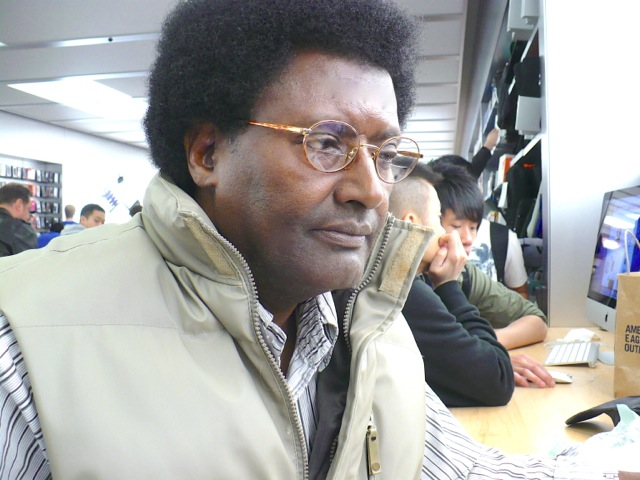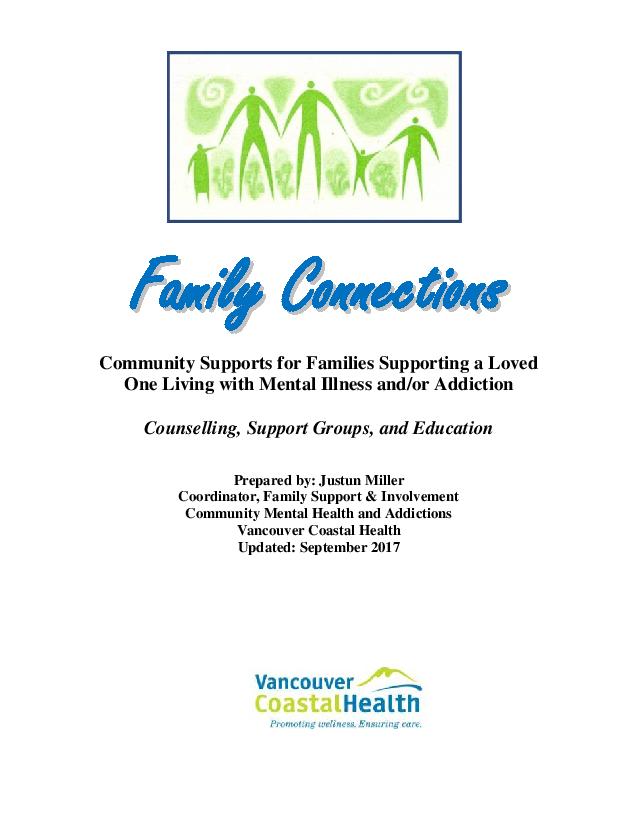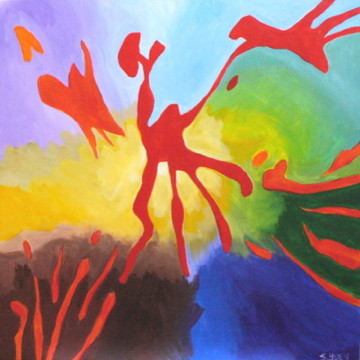
I Had Insight Into My Recovery

This post is from one of our guest contributers who shares a turning point in his recovery journey. Zerom is a Peer Support Worker and author of two books: “Not Guilty but not Free” and “Alone in the Crowd.”
I Had Insight Into My Recovery
By Zerom Seyoum
I have been suffering from mental illness called paranoid schizophrenia. The medications do work and offer relief but always to a degree. The first medications I took were effective mainly in blocking the voices but not the paranoia. The medications had terrible side effects. So I kept saying I am doing very well although some of my treatment team found it difficult to agree. The psychiatrist decided to keep me on the same treatment. I kept complaining of the side effects. My psychiatrist did everything else to alleviate the pain but changing the medication. My psychiatrist left for another city and a new psychiatrist was assigned to me. I told him that I was doing very well and that I had recovered. My life experience was: any sick person would take medications and gets well in two weeks or in a month or six months or cease to live. I had no experience with a sick person who would take medications through out his life. So the psychiatrist believed me and took me off the medications as I requested. It was a big relief from the side effects. But I had difficult sleeping although I was on sleeping medications. It took only two or three months to be deluded with paranoia again. I experienced again the same symptoms as my first experience with schizophrenia. All the delusions I was experiencing were realities to me. A close staff approached me and told me that staff were saying I was very sick and he asked me to tell him how I was feeling. I told him I was doing fine. I trusted him and told him that the hospital was the one hiring mercenaries to kill me or to drive me crazy and that I would keep on fighting it. Medications wouldn’t fight for me. I didn’t know that he would report this to my treatment team. The delusions, fear of everybody outside me, were eternal torture. But I preferred this eternal torture to being put back on the same medications and suffer from the excruciating side effects. Unfortunately/fortunately what I feared came to be realized. The psychiatrist concluded that I was sick again and he put me on the same medications I was put on before. But this time he gave me the same medication in injection form and not pills. My delusions gradually vanished. I was relieved from the paranoid delusions I was suffering from. Besides this time, the medications had very little side effects compared to the pills. For the first time I knew I couldn’t go without the medications. For the first time I had insight to my mental illness.
But due to the medications or the illness or the hospital environment, I was unable to concentrate for more than an hour a day on the French language correspondence course I was taking at the hospital. Then an hour later I couldn’t remember what I read or learned. I said to myself, “not to worry; one day I will be out of the hospital. Nobody will force me to take these medications and I will join a university and get my PhD or at least MSc and live a good normal life like the other people.”
It took me a while to learn that I have changed and that I will never be able to tackle life as I once did. I came to know I was different from whom I was before I was sick. I came to know I couldn’t do what I was able to do before I got sick. For the first time I was able to have insight to my mental illness. And I dropped all the dreams of PhD or MSc. Once I knew this, I stared the long journey to recovery.
In the hospital I had no hope. I had no future. I had no dream. Everyday and night I was thinking of ending my life. I used to dream about it. In fact I attempted three unsuccessful times. Eventually, I left the hospital.
With the support of one mental health organization, I was placed in a one bed room apartment. I started a new life different from what I knew in the hospital. There was nobody I could talk to. There was nobody I could laugh with. Days and nights were very long. Although I had it all !!, everything became meaningless and redundant. I had too much time in my hands and nothing to do. There was no social life. I kept attending one mental health social club for two to three hours a day. But I couldn’t win a friend. I had a visit, one day a week, from out-reach workers. But the extra time and loneliness reached the highest point in my life. I concluded that the best thing for me was to end my life. My apartment was in the second floor and one day I went to the balcony to throw myself down to the cement ground to my death. To my surprise, for the first time in my schizophrenic life, I was scared of death. Sweat started running down my cheeks. I looked back and looked at my room. I had everything I ever needed. Above all I had freedom which I was deprived of when I was in the hospital. For the first time I had value for my life. This made me think of better things than death. Once I had insight to life with mental illness, I started thinking of ways I could volunteer and contribute and be productive. I started the long journey of recovery.
A short time later I was admitted to a peer support worker training. It was not easy because I was falling asleep in class while attending the training and I had difficult remembering what I learned afterwards. Whenever we had a break one classmate used to bug (annoy) me saying, “I saw you. You were sleeping in class.” I also used to sleep on the bus on my way to class and back. Once I had a Starbucks coffee in my hand and I fell asleep on the bus. One of the passengers thought I would spill the coffee on him and woke me up and said, “I guess the coffee is not helping.” I studied the course day and night. I gave it all I could. Best of all I won a friend and I successfully completed the training. I obtained a part-time job as a peer support worker. Ever since I have been sharing hope with my clients. Working as a peer support worker has speeded up my recovery. Helping clients who are going through what I went through has given me self-satisfaction and self-esteem. There is no contribution and a more productive thing than helping a person who feels he has no hope for recovery, no future, no dreams and who feels lonely and alone. I am a good listener and a close companion to each of my clients. Isn’t that what a peer means?
25 years later, I still take medications four times a day and another medications in injection form twice a month. I tell you, I know when my recovery started but I have no idea when it ends.


